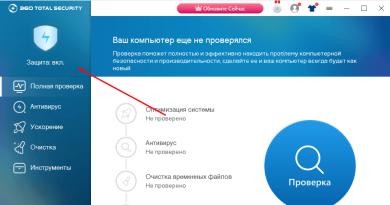“On the boardwalk terrace, the well-known freckled Agrippina Savvichna treated the collegiate assessor Apollon Ippolitovich with vinaigrette, shellfish and other dishes.” This tricky dictation was written by our grandmothers to prove their literacy. As a rule, few people managed to get by without making mistakes the first time. But the examinees remembered for the rest of their lives the spelling of those words that they failed. Today, children need to first translate a passage from classical Russian to modern Russian. Because, as philologist teachers assure, the vocabulary of today's children and teenagers is rapidly declining.
Recently, in one of the Moscow schools, eleventh-graders, while recording a passage from dictation, unanimously wrote “with the rokobes” instead of “Griboyedov fought with the obscurantists.” Because “rock” and “demons” are somehow understandable, but no one has heard of “obscurantists.” As well as about “threshing” or, say, about “brochure”.
So if you want to raise a literate child, first of all inspect your home bookshelves: after all, in addition to the spelling dictionary ed. V.V. Lopatin, it would be good to include, at a minimum, an explanatory dictionary and an orthoepic one. And, of course, teach the child to use them.
But let's return to the unforgettable freckled Agrippina: it turns out that the relevance of the text remains to this day. After all, almost every word in this dictation is based on some specific rule.
Judge for yourself:
- “cobblestone” - suffix -chat- (the suffix -schat- does not exist);
- “not unknown” is written together, because it can be replaced with the synonym “known”. And after Russian prefixes on consonants, instead of and, it is written ы;
- “regaled” - if in the 1st person the verb ends in -y (I regaled), then we choose the suffix -eva-.
Well, you need to know the spelling of such names and patronymics as Agrippina Savvichna and Apollon Ippolitovich, because today old names are in great fashion. So, in 20 years, this knowledge may come in handy when you have to write to your partners, colleagues, and even more so to your superiors.
Where are the literate ones?
“Recently, a 5th year student of the philology department of a well-known and respected university came to our practice. Her notes for the first lesson began like this: “Hello children” - without a comma!” — the director of a Moscow school says indignantly.
And many are ready to share this indignation. After all, it’s already somewhat banal to say that universal literacy is falling. Why is all this happening and what to do about it?
Causes of illiteracy:
- The first, which is always cited by teachers, psychologists and sociologists, is the lack of reading habit. And it’s not just children and teenagers who don’t read, but everyone in general. Or they read, but that’s not it: in the “literary waste paper” not only will you not find examples of literate speech, but also with proofreading things are very bad.
- Internet communication also makes its contribution: the abbreviations, slang, and careless handling of spelling involuntarily transferred into normal written speech.
- We have to admit that training in schools and universities has deteriorated.
- Much depends on the fact that parents are looking for the problem in the wrong place. A child gets bad marks in Russian, but is scolded for laziness. He can’t put two words together, but with all his might they push him into a strong class with a complicated program: they say, it’s better to be a lagging student there than in a regular class - an average student. And as a result, they trigger possible speech therapy problems, which tend to manifest themselves as illiteracy.
Cause: disease
So, in the pursuit of literacy, the first thing you need to do is show the future student to a speech therapist. And the sooner, the better.
“By the age of four,” says speech therapist Olga Kovalevskaya, “it is possible to determine whether a child is at risk. And this is exactly the age when treatment will be most effective.”

What should alert parents and become a reason to go to a specialist:
- the child does not pronounce all sounds clearly, replaces some with others (r - l, s - w);
- does not distinguish speech sounds by ear (voiced - dull, hard - soft, whistling - hissing);
- skips syllables in words: for example, instead of “ve-lo-si-ped” he pronounces “ve-lo-ped”;
- the baby has insufficiently developed fine motor skills (cannot tie shoelaces, fasten buttons, etc.);
- visual-spatial representations are not sufficiently formed (cannot copy an image, confuses right - left, top - bottom, etc.).
Reading and writing impairments appear already by the middle of 1st grade. For example, a student with dyslexia rearranges or skips letters and sometimes syllables when reading aloud.
And those who have dysgraphia write lowercase y instead of lowercase d, and f instead of v. He also skips or rearranges letters in words. And even if he learns all the rules, he will make many mistakes in dictations. The last problem is faced by those who can be diagnosed with dysorthography by a speech therapist.
The Myth of Innate Literacy
It happens that it is not possible to find a test word due to a poor vocabulary. But a speech therapist will no longer help with this problem - if children read little, where will rich vocabulary come from?
Respect for books has been instilled since the age of 3. And it starts with how often the child sees mom and dad with a book. And how often and how much they read to him.
“Sometimes I hear a person boasting: “I never learned the rules, but I write without mistakes! I have innate literacy!” says psychologist Andrei Sokolov. “From here we can conclude that innate illiteracy also exists. Which means, learn - "Don't study, the result is the same? I'm afraid to upset those who believe in this, but the ability to write without errors is, after all, an acquired property. It was simply acquired by those who seem to be able to do it automatically, at an early age."
What is necessary for the so-called “innate literacy” to appear?
Firstly, you need to have excellent visual memory.
How to develop visual memory? There are many ways. Let's name the most common ones:
- work with pictures "Find 10 differences";
- game “What’s missing?”: place 7-10 objects on the table, and when the child says that he remembered them all, ask him to turn away and remove something or rearrange it. The challenge is to determine what has changed;
- One of the most effective exercises is to show your child a piece of paper on which simple figures or patterns are depicted and ask them to try to draw them from memory.
Let's study
Let's assume the best case scenario: your child does not have any speech therapy problems, and there is a cult of reading in the family. All this does not mean that the child will become literate on its own. The process must be controlled and directed.
Before school
- When reading aloud, pronounce all words clearly.
- Talk to your child more. Every time you read fairy tales, have a conversation: who the main character is, where he lives, what he does... And make sure that the child does not answer in monosyllables, but constructs sentences logically.

Primary School
- In 1st grade, we look at which words the child makes mistakes and always work on the mistakes.
- We set tasks: find in the text, for example, proper names (including animal names, names of cities). We ask: “How would you write them?”
- In 2nd-3rd grade everything is the same, but we ask you to also find, for example, all the adjectives. Or all words with an unstressed vowel, etc.
- To consolidate what has been learned, the so-called “letter with holes” is useful. That is, let him write words in which there are stressed vowels and vowels that the child is sure of, and skip those that he doubts. So that you can think about it later and choose test words with the same root. For example, say... The test word is "milk". This is a great technique for developing self-control.
- When arranging home dictations, first be sure to read the text out loud and ask the child to close his eyes and, while listening, imagine what the text says. And only then start writing.
high school
- The biggest mistake parents of frequently ill children (and these days, are the majority) is forgetting that homework is only a third of what students learn in class. That is, simply completing everything that was assigned for homework is completely insufficient: you must also complete all the exercises that are in the textbook on the missed topic.
And in general, the golden rule of an excellent student: it is not the most capable, but the most diligent who passes the exams best. That is, someone who is not lazy to complete the entire routine of daily tasks. Then the spelling rules will be followed automatically. Moreover, there are not many really difficult ones among them. And if they are not given, you need to turn to the teacher for help.
- As in primary school, working on mistakes remains the most important weapon in the fight against illiteracy. It must be inevitable and mandatory! With a good teacher, all students have a special notebook where they write down words in which they made mistakes. Then dictations are compiled from these words: it is quite enough to write them 2 times a week for 5 minutes.
Memos
Does your child, with unpleasant persistence, forget the rules and make a mistake out of a mistake? It is very difficult not to break down and scold him. But you will have to restrain yourself: anyway, shouting will not do any good, and intolerance in this matter is a bad help. Believe me, the more fun the fight, the easier it is to win.
The Russian language is very logical. Let's take the same Agrippina Savvichna as an example: what does she have on her nose - freckles or freckles? And it’s immediately clear why it’s spelled “freckled.” An experienced teacher knows: if children laugh at a mistake, they will probably remember the correct spelling of the word in the future.
How do you remember all the voiceless consonants? Try to memorize s - t - p - k - x - h - w - sch - c - f. It's a bit difficult, right? Attention - we turn on our imagination, and now: “Styopka, do you want a cheek? - Fi!” They're all here, and it's easy to remember.
And, for example, the phrase “Zosya is waiting” includes all consonants, after which the suffix -chik- should be placed.
Not sure how to spell "men" and "women"? Use Domostroev’s logic: “a rank for a husband, a cabbage soup for a wife.” You really can't go wrong! Usually children are delighted with such pedagogical tricks.
Discussion
02.12.2017 15:36:44, Rezada
Very good and instructive article. It will be very useful for young mothers, and not only for them, but for many others who want their children to study well and know their native language.
Comment on the article "Russian language: how to become literate. 9 ways and fun memories"
In a month and a half, I learned Russian like never before at school, admired every lesson - the subject in a strong school was a failure from the very beginning - phonetic analysis was trained from the age of six until I was blue in the face, and then from the age of 4...
Discussion
I studied with my son, although for a very long time, using Rusova’s textbook “Russian language for those entering universities.” Such a thin book. There, all the rules of the Russian language and exercises for them were given in a very concentrated form. We went through this textbook with him the summer after 6th grade. We studied for 1.5-2 months, 2-3 hours a day. We never returned to this. But it was enough for him to graduate from school with an A in Russian and enter a university.
04/05/2018 04:10:03, mn-kononovaIf there is no time at all, then only a tutor. Optimally - via Skype, so as not to waste time on movement. Rep will identify failures, work on the necessary topics, and provide moral support. And it's not too expensive. Once a week is enough.
If you want trash, then yes, Foxford-interneturk-self-education. But you need to understand that this is 10 times more time-consuming.
How to improve Russian? Good afternoon everyone. Happy New Year everyone! Russian language tutor, preparation for the Unified State Exam. Adult education: higher education, MBA, advanced training, training, learning foreign languages.
Russian language: a literate child – how? Rules of the Russian language: learn in the game. "Russian language for everyone. Rules of the Russian language. 44 rules that make learning grammar as easy as shelling pears!
Discussion
I join the request. You need the same thing, but online. It’s somehow easier to find the right rule on a computer. Thank you!
I don’t really understand what “a collection of rules for beginners” means: are they special for the first 4 classes? There are simply rules of the Russian language. As for me, nothing better has been invented yet than Ditmar Elyashevich.
Russian language: a literate child – how? Rules of the Russian language: learn in the game. Student literacy. This happened to my daughter and I when we were 6 years old. When I was a child, they started learning the language in a special school in the second grade, that is, at the age of 8.
Discussion
But “Towards an A, Step by Step” somehow didn’t work for us (My son’s Russian grade is decided in almost every trimester - between 3 and 4, but in the last trimester I decided to push him up and took this matter seriously. Every evening!! we wrote a dictation from the book by Uzorova and Nefedova (for his 3rd grade) and did 1 exercise on grammar (sometimes more) from the same Uzorova and Nefedova (in my opinion, the entire course of the Russian language is called 3rd grade). This textbook is good because it Each topic is given many exercises of the same type, which can be done in the textbook without copying it into a notebook. In general, even the teacher noticed that things were getting better. As a result, the grade was a solid 4. The only difficulty is to force me to study extra every evening)))



